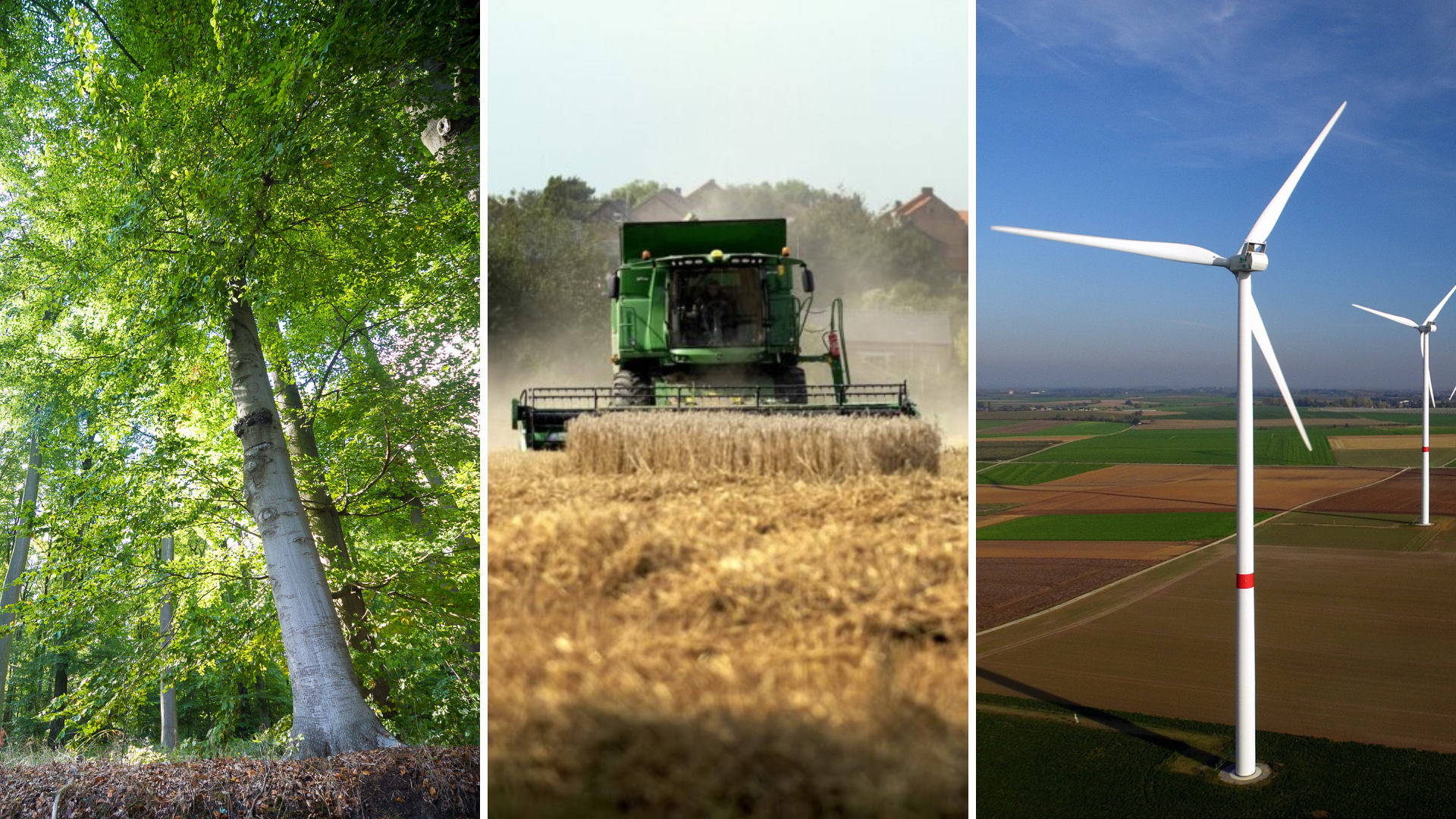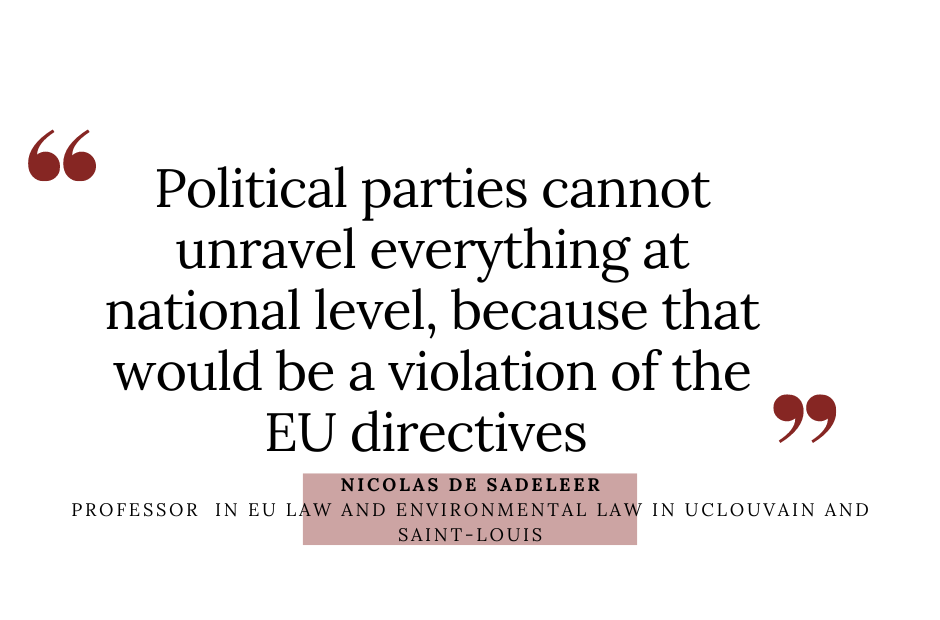On Sunday, Belgians go to polling booths to vote in the federal, regional and European elections. Hot topics are: migration, economic resilience, international conflicts, security, and the unity of Belgium. But with the climate given distinctly less attention during campaigns, environmental experts fear that confronting this crisis may take a back seat in the next legislature.
Both at a national and a European level, what is at stake for climate policy after this weekend?
The Green Deal
When the Green Deal was adopted in 2020, the goal was crystal clear: making the EU completely carbon neutral by 2050.
It was a flagship deal brought to pass by the current European Commission and sets out key climate goals and strategies across almost all aspects of European society.
The terms of the deal were made legally binding in the EU Climate Law, which also set the intermediate target of reducing net greenhouse gas emissions by at least 55% by 2030, compared to 1990 levels.
The Green Deal came about after the 2019 European elections when there was a spike in support for Green parties across the continent.
However, as the ballots have already started to be cast in some Member States for the European Parliament elections this week, it is expected that parties on the far-right will make gains, often after running campaigns that challenge the Green Deal.
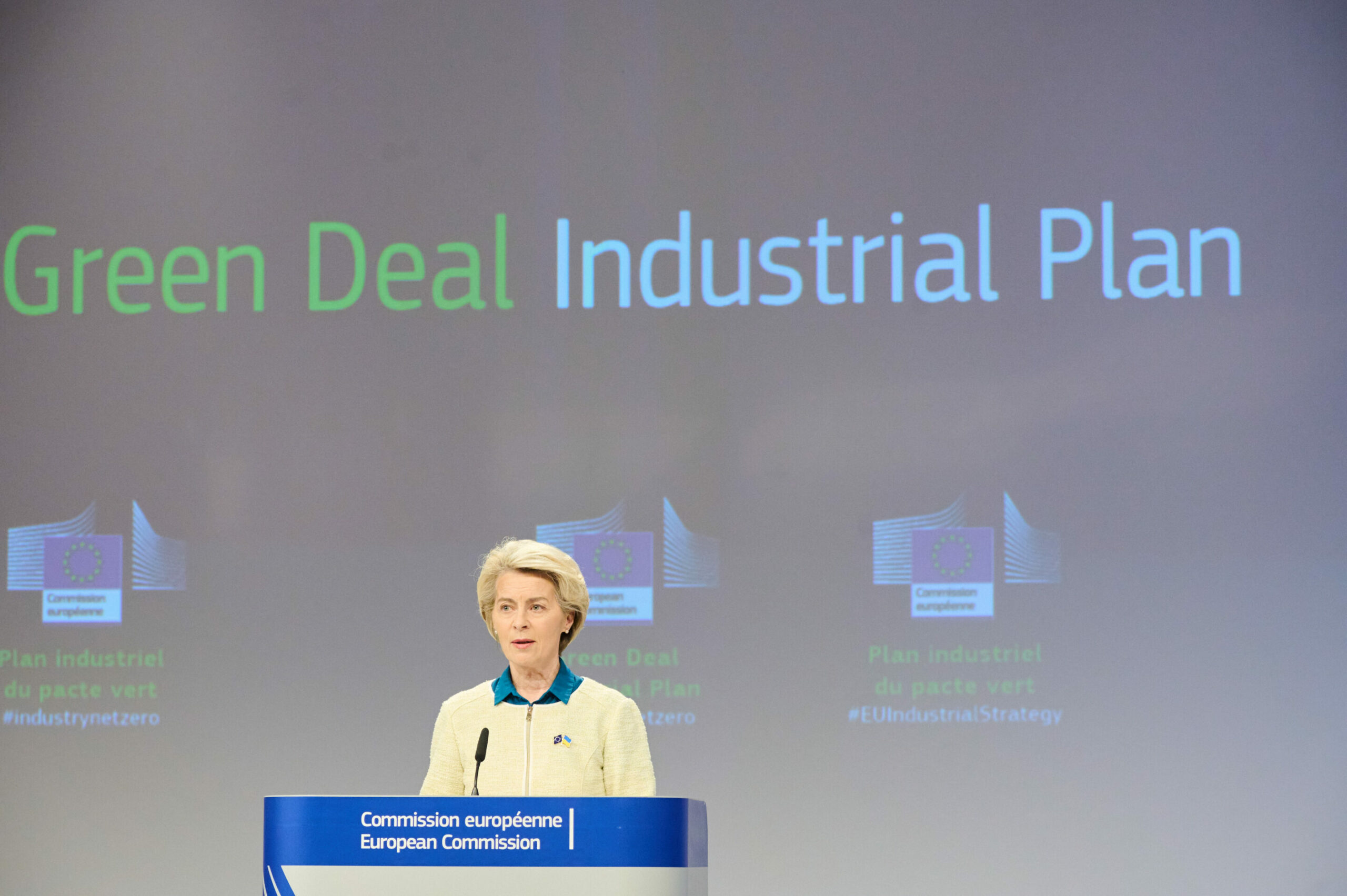
European Commission President Ursula von der Leyen presenting a "communication" detailing the EU's "Green Deal Industrial Plan" in Brussels on February 2023.
For the last four years the Institute for European Environmental Policy (IEEP) has published its ‘European Green Deal Barometer’, a poll of more than 300 climate experts who give their take on how European climate policy is faring. Antoine Oger is research director at the IEEP and says that the 2024 report published in recent weeks shows a “marked drop” in how positive experts feel about the EU’s Green Deal.
According to the survey, 67% of climate experts think the upcoming elections will have a negative impact on the implementation of the EU Green Deal. They say the flagship EU climate legislation might lose its central position among EU policy, or be weakened or constrained. Oger says that farmer protests since early 2024 were a “major inflection point” for sentiments towards the EU Green Deal, as well as the impact of the Russian invasion of Ukraine on both energy and agriculture.
However, while pessimism is growing for the future of climate objectives, many experts still believe in the resilience of the EU Green Deal, with 55% stating that they are confident that the European institutions will still pass legislation to achieve the Green Deal.
Oger said that while the spotlight may have turned from environmental issues to topics like Europe’s economic competitiveness, there is still a place in the discussion for climate measures that appeal to “both sides of the aisle”, like energy efficiency and promoting a circular economy.
He argues that policy areas like protecting nature – where it is more difficult to persuade stakeholders to look past short-term costs to the longer -term economic benefits – are likely to be the biggest losers in the next legislature.
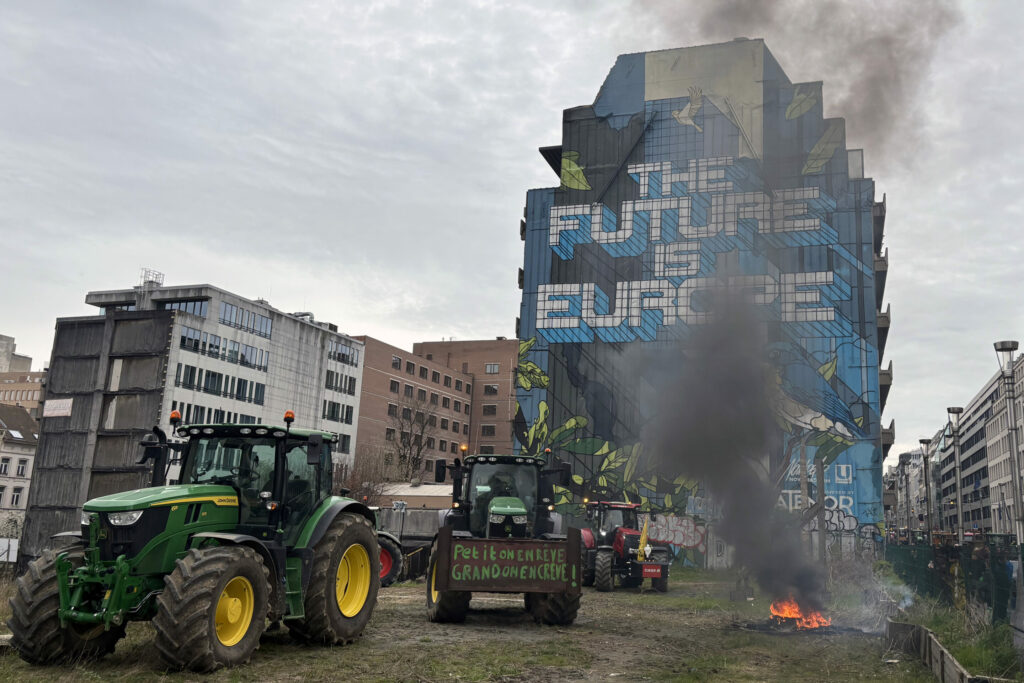
Farmers protesting on Rue de la Loi in Brussels, Tuesday 26 March 2024. Credit: Belga / Gregory Ienco
Regardless of the result of this weekend’s European Parliament election, Oger highlighted that it is not the “main risk” to EU climate policy. Instead he pointed to the “Pandora’s Box that we have opened in recent months”, with countries backing out of negotiated deals at the final hour (such as Hungary with Nature Restoration Laws or Germany and Italy regarding corporate sustainability rules).
“That for me is a major risk; it doesn’t matter what the colour of the European Parliament is or what the European Commission does if any country can just go back on a deal then that’s the entire EU policymaking process that’s in jeopardy, for nationalistic concerns and considerations.”
Belgian elections
The picture in Belgium is similar to many other EU Member States, with polls suggesting electoral successes for far-right parties. According to the latest RTL info poll, Flemish far-right and nationalist parties Vlaams Belang and N-VA are expected to collect 27.2% and 19.6% of votes, respectively.
However, in Wallonia the PS (left) and MR (centre-right) are leading the polls, with 23.9% and 23% of votes, respectively.
Flanders
In Flanders, Vlaams Belang and N-VA are the parties most critical of current climate policy. Vlaams Belang has slated the “green dream”, saying it has “turned out to be a nightmare”. It argues to abolish the Green Deal and pause all existing European climate rules. The far-right party says that future proposals concerning the energy transition must be “affordable, reliable, and better for the environment”.
Among energy and transport commitments, the party is advocating for car-friendly policies and says the phase-out of fossil fuels can only happen if it is “gradual and affordable”.
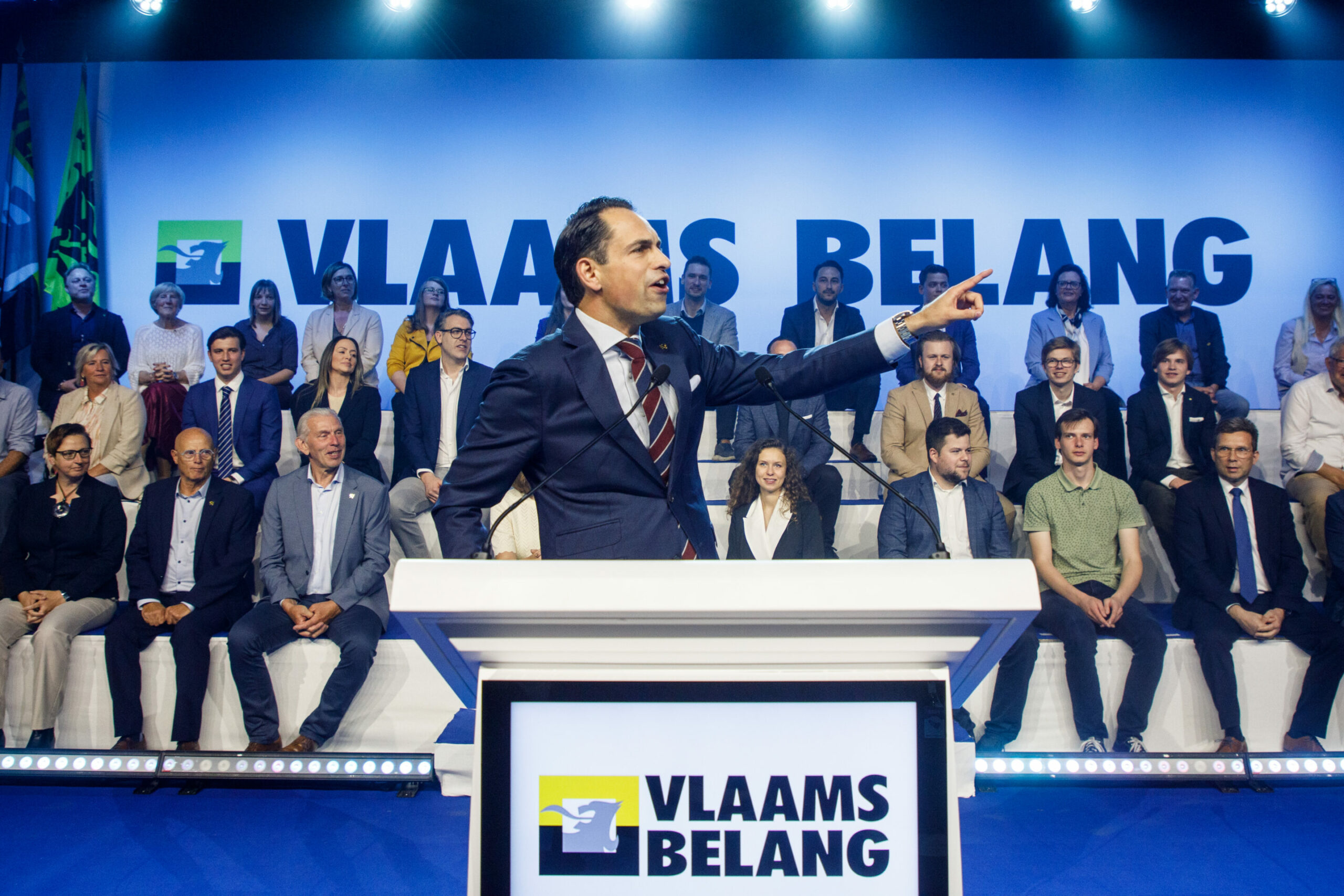
Vlaams Belang chairman Tom Van Grieken pictured during the 'Grote V-Meeting' electoral meeting of Flemish far-right party Vlaams Belang, in Antwerp, Sunday 02 June 2024. Credit: Belga / Hatim Kaghat
Meanwhile, N-VA says the current Federal Government has created “unattainable and unaffordable climate ambitions”, and that climate policy should be based on economic growth, innovation and development. The party thinks the EU Green Deal has gone too far and says it will oppose or reverse EU measures that “increase the bill for citizens and businesses or that lead to excessive administrative burdens”. It supports the phase-out of fossil fuels "where possible" but only if it doesn’t worsen the competitive position of companies.
The centre-right Flemish Open VLD and Christian Democratic and Flemish (CD&V) parties both accept current EU climate targets but champion economic growth, industry, technological progress and innovation as part of the climate solution.
Centre-left Vooruit also promises to uphold Green Deal objectives and calls for ambitious and collective climate policy measures rather than ones that place all the responsibility on the individual.
Meanwhile, Groen (Flemish Greens) advocates for European climate agreements to be protected and strengthened, as well as to introduce a Flemish climate law similar to one at Brussels and federal level. The party calls for “fair climate policies that include everyone” and wants the “biggest polluters [to] contribute the most”.
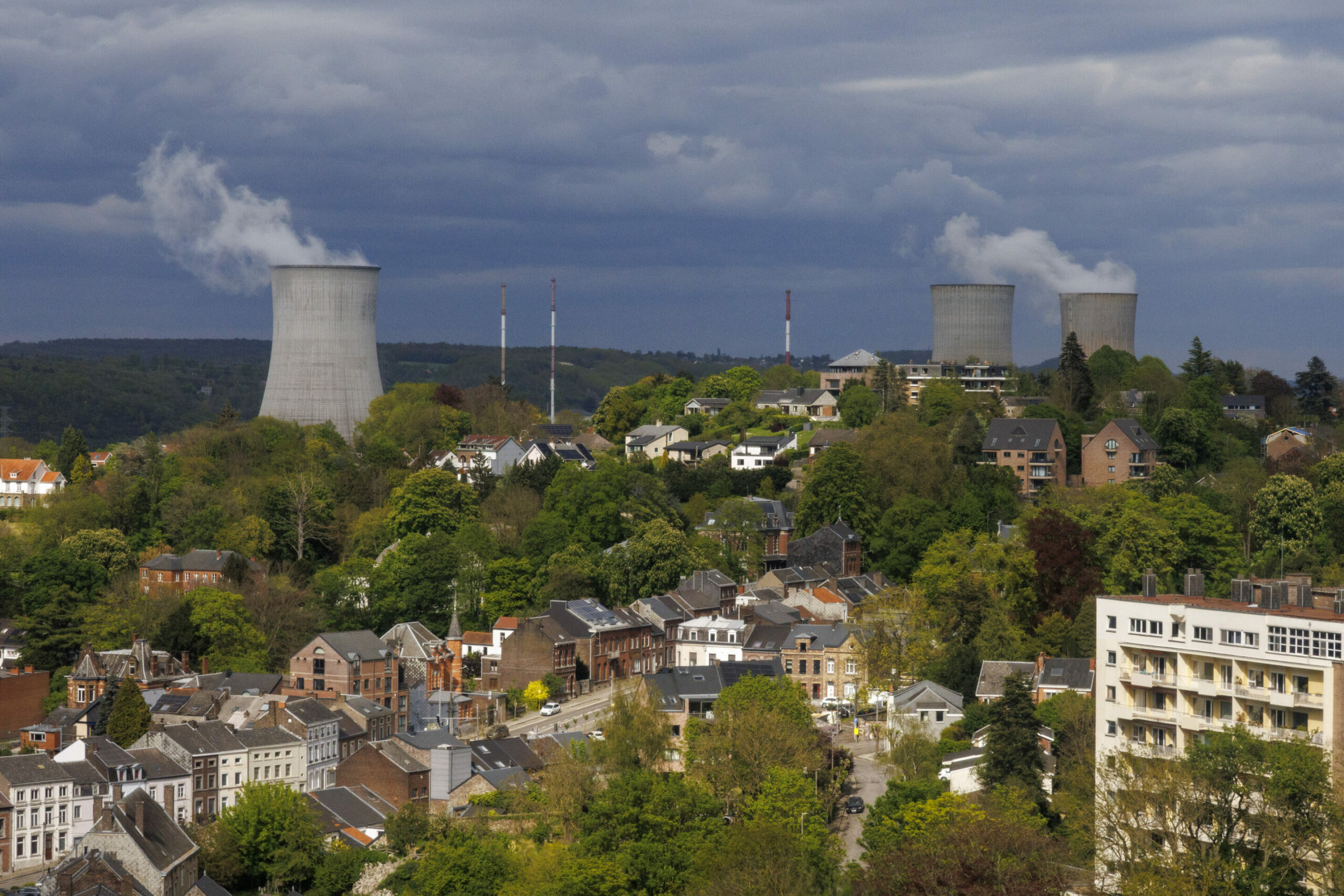
Tihange nuclear plant is seen from the cable car, in Huy, on Saturday 27 April 2024. Credit: Belga / Nicolas Maeterlinck
Regarding energy production, both Vlaams Belang and N-VA say nuclear power should play a central role, supplemented by renewables. Open VLD and CD&V are also pro-nuclear but place greater emphasis on investing in renewable energy. For Vooruit, the main aim is to drive investment in renewables, though the party accepts that nuclear power is a better solution than fossil fuels. Groen makes no mention of nuclear energy in its manifesto but has staunchly opposed the carbon-neutral energy in the past. It wants to “massively” invest in solar and wind to triple production by 2030.
Wallonia
No parties in Wallonia openly oppose the Green Deal, but views on the exact approach to climate issues differ. Left-wing and centre parties stress the need to ensure a fair ecological transition.
Ecolo (Walloon greens) is most supportive of strengthening environmental policies. It highlights the need to transform the Green Deal into a “green and social deal”. They want to achieve 30% organic consumption by 2030, and over the same period reduce pesticide use by 75%, beyond European targets.
PS also calls for an “ecological and social transition” and intends to “tax the rich” at the European level to fund environmental policies.
Les Engagés (centre), plan to hold a citizen assembly to ensure a “fair transition” with citizens to confirm the decisions in a referendum.
Meanwhile the PTB/PVDA ( Belgian Workers Party, radical left) go further and speak of a “climate and social revolution”. The party is sceptical of the current Green Deal, considering it to be “insufficient to respond to the climate emergency.”
DéfI (centre) calls for a “common energy and climate market” to increase Europe's independence from external fossil fuels. The federalist democrats champion green growth and oppose degrowth.
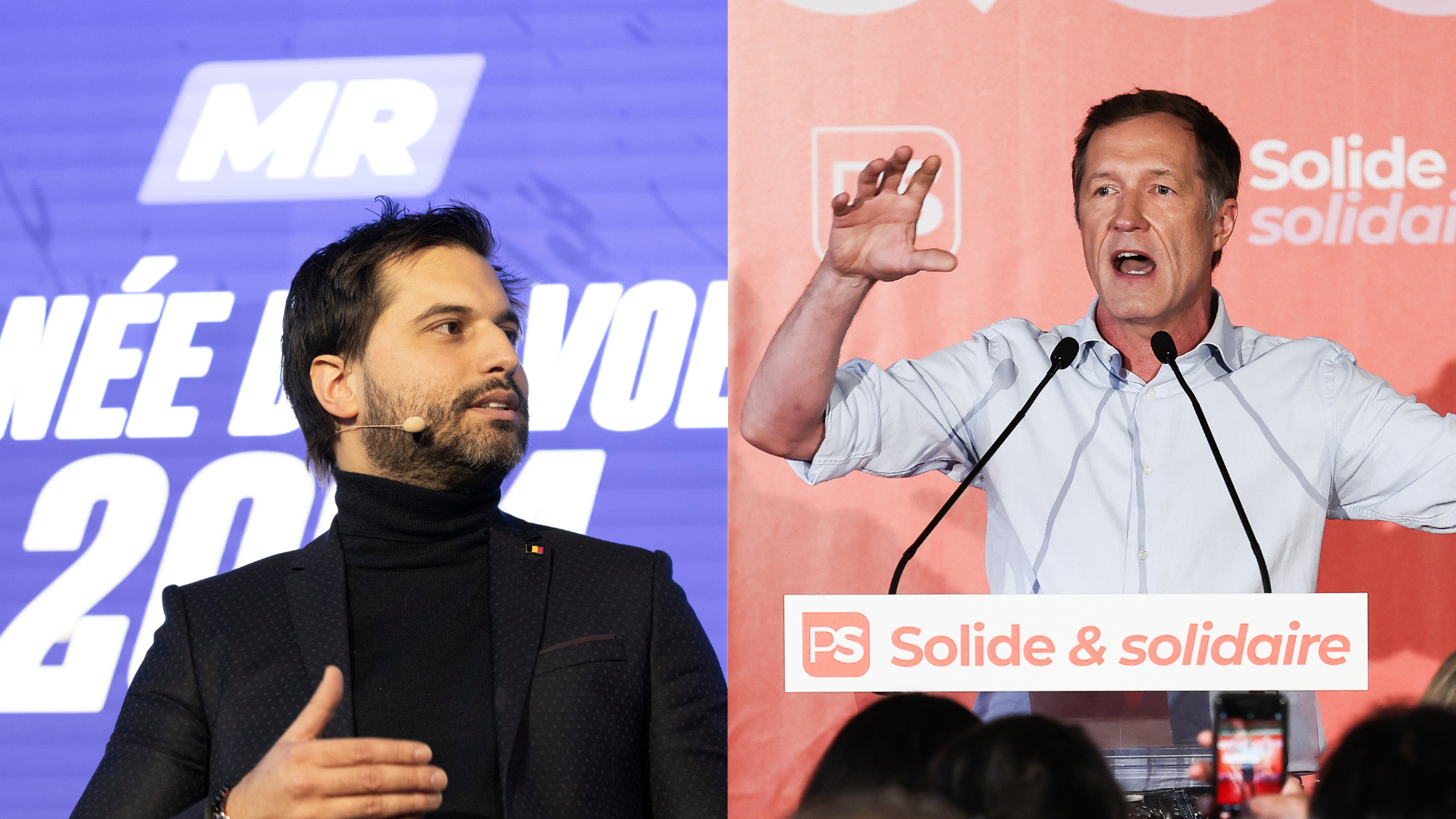
MR chairman Georges-Louis Bouchez and PS chairman Paul Magnette. Credit: Belga
MR intends to review the Farm to Fork strategy “in order to maintain support for our farmers and work towards our food sovereignty.” The party also highlights the importance of technological innovation to respond to climate challenges and wants to open new nuclear reactors.
While centre parties DéFI and Les Engagés also would like to invest in nuclear power, PS and the PTB/PVDA are more hesitant, but acknowledge the temporary role of nuclear power to ensure the transition into renewable energies. Ecolo is opposed to nuclear energy, saying it is “neither a clean nor a renewable energy source.”
Mere rhetoric or genuine political will?
A report by the World Wide Fund for Nature, which examined whether Belgian parties support the Green Deal, found that while there is cross-party support for continuing the EU climate deal into the next legislature, there is a “notable gap when it comes to committing to specific and achievable measures”.
“This raises concerns that, for some parties, the commitment to the EU's Green Deal is merely rhetoric rather than genuine political will. A closer examination reveals that some parties repeatedly refuse to commit to short-term deadlines, common budgets, or binding targets to meet their stated ambitions,” the report reads.
Nicolas de Sadeleer, a professor at UCLouvain and Saint-Louis and specialist in EU environmental law, says that the manifestos of Belgian parties generally lack any clear vision on environmental issues: “They are very poor, laconic and simplistic, especially compared with the scale of the ecological, social and economic issues at stake,” he told the Brussels Times. He highlights a lack of concrete figures and budget provisions for climate policies.
Legal resilience
However, de Sadeleer acknowledged that it would be difficult for any Belgian party to row back on any existing EU environmental laws, due to the principle of “non-regression”. “Political parties cannot unravel everything at the national level, because that would be a violation of the [EU] directives and regulations that have been adopted.” He added that it would be “a very difficult and lengthy process” for parties to revise the Green Deal.
According to de Sadeleer, even if Vlaams Belang and N-VA managed to gain 50% of the total vote in Flanders and come to power, their attacks on climate policy could come up against the obstacle of the Belgian courts. In 2023, the Brussels and Flemish regions were condemned for the “inadequacy” of their climate policies.
“Not respecting court rulings would mean ignoring the rule of law, which is at the heart of our democratic systems,” de Sadeleer cautioned.
Swinging to the far-right
Climate activists in Belgium are broadly concerned about the implications of a right or even far-right government. Climaxi is the Flanders branch of international environmental federation Friends of the Earth; spokesperson Filip De Bodt told The Brussels Times that there is a “big chance” of a swing to the right. He said that a Flemish parliament dominated by Vlaams Belang and N-VA could create a “really huge, difficult situation” for environmental matters.
He says that right-leaning political groups are “never a very effective climate solution,” adding that “they fight for a free economy, which is a contradiction.”
De Bodt also points to a shift within centre-right parties like VLD and CD&V, which are changing their stances on climate issues in a bid to keep voter support. “In discussions about farming, nuclear energy, climate, nature restoration, you can feel that a lot of traditional parties are running after Vlaams Belang and the other nationalists.”
‘Status quo is not a solution’
De Bodt expresses concern that climate discussions have fallen off the agenda – something he discerns across the political spectrum. “Most parties have said they will stay loyal to European climate politics, so maybe we’ll maintain the status quo. But this status quo will lead us to three or four degrees warmer. That's not a solution, we actually need to step up measures.”
The stagnation in climate policy might also be exacerbated by the fact that it could take months, even years, to form a government. Coalition talks for the current ‘Vivaldi’ government made up of seven different parties took almost 600 days.
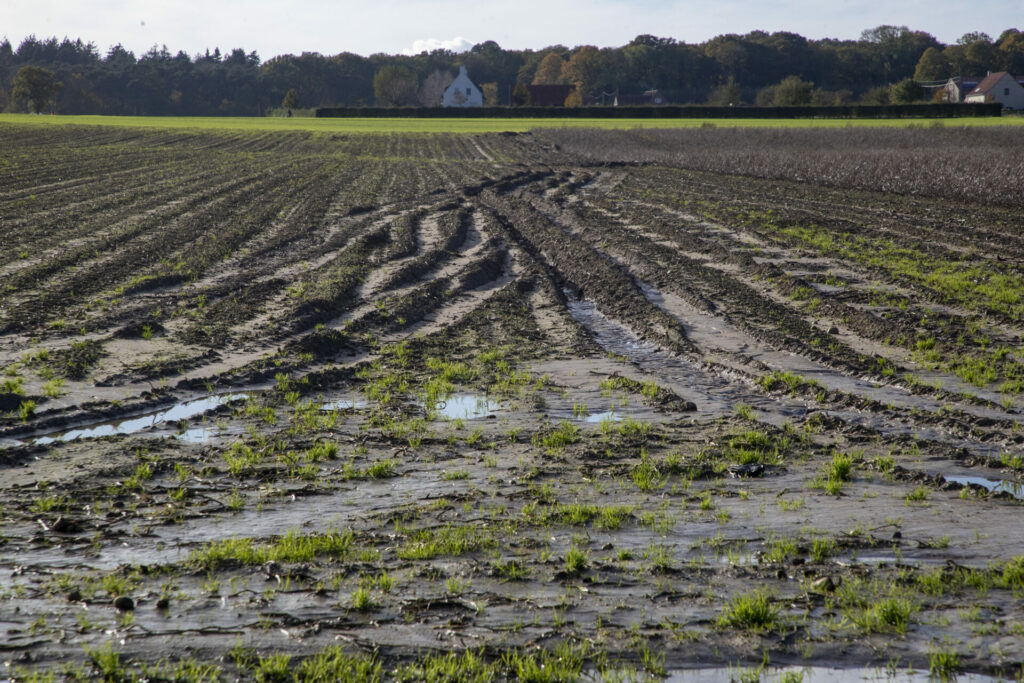
A field after days of heavy rain in the West Flanders province. Credit: Belga
“If you take half a year or a year to discuss [government formation] you will lose a lot of time. It’s not only a question about nature or ecology –farmers can’t plant potatoes at the moment because it’s too wet; in summer it’s too dry, food production is declining in general,” he stated.
“The solution will not be to free the market of climate regulations; the solution will be a better income and clear measures about what you can do and what you cannot do. We have to take those measures now.”

